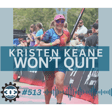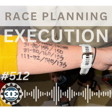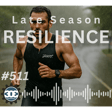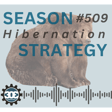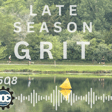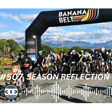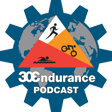
Running Magic Bobby McGee
#492 Running Magic with Coach Bobby McGee
Welcome
Welcome to Episode #492 of the 303 Endurance Podcast. We're your hosts Coaches Rich Soares and April Spilde. Thanks for joining us for another week of interviews, coaching tips and discussion.
We are excited to have special guest Coach Bobby McGee.
I gotta say, Rich this might be an episode for the ages! We have so much excitement and goods to bring in this show I don’t know where to start!
Show Sponsor: UCAN
UCAN created LIVSTEADY as an alternative to sugar based nutrition products. LIVSTEADY was purposefully designed to work with your body, delivering long-lasting energy you can feel. Whether UCAN Energy Powders, Bars or Gels, LIVSTEADY's unique time-release profile allows your body to access energy consistently throughout the day, unlocking your natural ability to finish stronger and recover more quickly!
In Today's Show
-
Announcements and News
-
Interview: Coach Bobby McGee
-
Get Gritty: Go all in—before you feel ready.
-
TriDot Workout of the Week: Bike-Run Bricks
-
Fun Segment: Quick Q & A with Coaches Rich & April
Announcements and News:
Our Announcements are supported by Vespa Power today.
Endurance athletes—what if you could go farther, faster, and feel better doing it? With Vespa Power Endurance Nutrition, you can unlock your body’s natural fat-burning potential and fuel performance without the sugar crash. Vespa helps you tap into steady, clean energy—so you stay strong, focused, and in the zone longer. Less sugar. More power. Real results. Fuel smarter with Vespa—because endurance is earned, not spiked.
Fun Fact: Vespa is the name of the Genus of Wasps.
Upcoming Programming -
May 24 - Coach Bobby McGee on the upcoming Run Camp May 31
May 31 - Bike Camp Highlights and interviews
G2G Spring Training Camp
May 17-18 - Swim Focus in C.Springs and Chatfield
May 24-25 - Bike Focus - Chatfield/Chatfield
May 31-June 1 Run Focus - Boulder/Boulder
Volunteer with us Jun 14, 2025 at the Boulder Res!
We are privileged to be in the IRONMAN Boulder 70.3 Transition Area again for 2025.
If you like watching the race and cheering for spectators, there is no better seat in the house. As a volunteer you will be in the middle of the action and the volunteer shirt will get you access to a lot of places regular spectators cannot access (eg finish line).
Please join me by signing up for the Transition Area early shift. It's a dang early morning, but you are also done relatively early and will have a blast!
https://ironman.volunteerlocal.com/volunteer/?id=88391&job_name=transition%20t1
TriDot Pool School July 26-27. https://www.tridotpool
